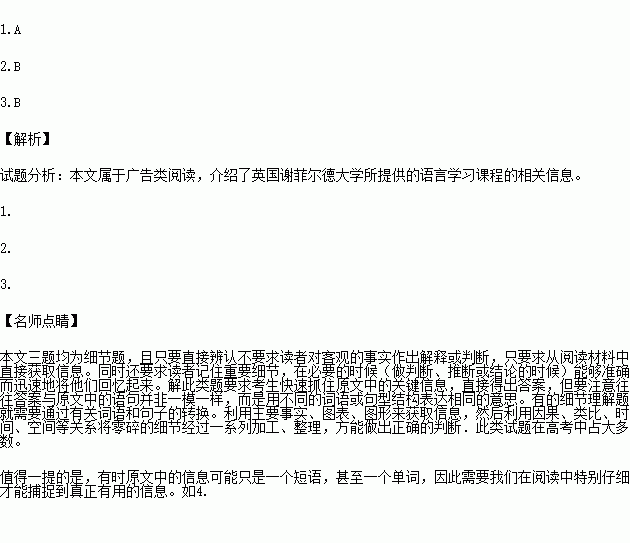题目内容

The University of Sheffield
English Language Teaching Center
Come and learn English in a safe, friendly city---Sheffield, close to a beautiful National Park.
We offer courses in:
Academic, General and Business English.
? We provide :
A choice of homestay
Or residential accommodation
Plenty of leisure activities.
Whether you want to study for a few weeks of a year, for university preparation, work of general interest, we have the course for you.
Contact us on: elt@sheffield. ac.uk
http://www.shef.ac.uk/eltc
1.The University of Sheffield is located in ___________.
A. the UK
B. the USA
C. France
D. Germany
2.We know from the passage that Sheffield is ___________.
A. a national park
B. a city
C. a country
D. a professor
3.English language teaching centre offers ___________.
A. business courses
B. English courses
C. French courses
D. general courses
 能考试期末冲刺卷系列答案
能考试期末冲刺卷系列答案


